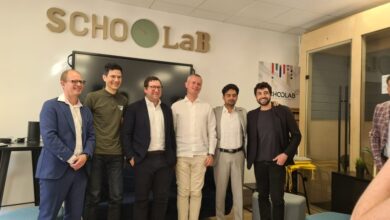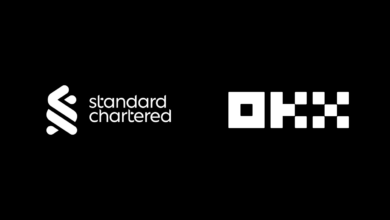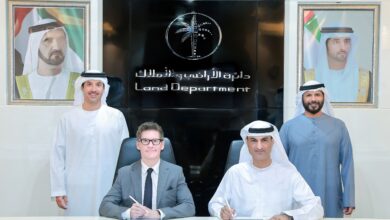Smart Dubai offering Blockchain and AI diplomas

Smart Dubai has launched a Professional Diploma to enhance the skills of the city’s ‘Smart City Experience Specialists’ and introduce them to best practices to improve the design and quality of experiencing current digital services and help create new ones to drive Dubai’s digital transformation and build a smarter city. The diplomas will include AI and Blockchain under Digital technologies module.
Taking place from the first week of September until the first week of November 2020, the Professional Diploma forms part of the new phase of Dubai’s Happiness Agenda, which His Highness Sheikh Hamdan bin Mohammed bin Rashid Al Maktoum, Crown Prince of Dubai and Chairman of The Executive Council of Dubai announced in December 2019. The launch of the latest phase of the Happiness Agenda aims at improving people’s experiences in the smart city of Dubai, and emphasizes the role of Smart City Experience Specialists as a key component of the way successful smart cities function.
The first of its kind in the region, the Professional Diploma is offered online by Smart Dubai in collaboration with the University of Dubai and the Dubai Institute of Design and Innovation (DIDI). It is accredited by the Knowledge and Human Development Authority (KHDA) and brings together 35 Smart City Experience Specialists from 27 government, semi-government and private sector entities.
“As the government entity tasked with driving Dubai’s transformation into a full-fledged smart city of the future, Smart Dubai is committed to supporting the education sector in its efforts to create new specialisations and programmes that that are needed to build successful smart cities,” said His Excellency Younus Al Nasser, Assistant Director General, Smart Dubai and CEO, Dubai Data Establishment, noting that the new Professional Diploma was designed with this exact objective in mind.
“The audience we will be targeting with the Professional Diploma are experienced practitioners who have extensive knowledge and real-world expertise in services, but are yet to have any formal training in design or research,” H.E. added.
“Focusing on Digital Technologies, Design Basics, Research Methods and Service Design is a unique and comprehensive approach to help learners develop a better understanding of emerging technologies and enhance their knowledge in this domain,” said Dr Eesa Bastaki, President, University of Dubai. “We live in the digital world and we must put in all necessary efforts to research, develop and design better learning methods to be applied in future projects.”
Mohammad Abdullah, President, Dubai Institute of Design and Innovation, said: “As urbanisation and populations expand globally, our relationship with the built environment and natural world is continuously impacted. We urgently need to develop new ways of thinking to solve increasingly complex problems. Design and design thinking matter more than ever as they provide the keys to innovation that would help us accelerate our response meaningfully and empathetically. These are skills that we need to place in the hands and minds of the next generation to enable purposeful and humanised digital transformation. For this reason, we are delighted to collaborate with Smart Dubai and the University of Dubai on developing the curriculum for the new Professional Diploma to advance the UAE’s knowledge-based economy and our ability to produce relevant and timely solutions.”
The Professional Diploma consists of four modules and a capstone project, where all of the Diploma’s learnings and takeaways are applied towards a real-life project. The first module is Digital Technologies, which covers the basics of key emerging technologies, such as Artificial Intelligence (AI) and Blockchain, and also covers dynamic service integration and information security. The second module, Design Basics, follows with insight into primary topics in design methodology such as design thinking, information architecture, user interface, and content design.
The third module is Research Methods and offers a practical review of important research methods, including survey and interview design, quantitative and qualitative analysis, and data science, while the fourth module, Service Design, brings all the threads together to create high quality digital services towards and exceptional experience, and covers the difference between product and service design, as well as the difference between digital and analogue services, including customer journeys and prototyping. In this way, the Diploma ensures that future digital services will be offered keeping in mind the manner digital services are designed and meant to be delivered.
As for the capstone project, each participant will be required to choose a project theme from a selection of pre-set project themes at the start of the course. Participants, working individually or in small groups, will also have the option to submit their own project theme, which would be subject to approval by course tutors. The objective is to apply course learnings towards a real-life project that is applicable in the real world, with an expectation of taking the project to actual implementation.





